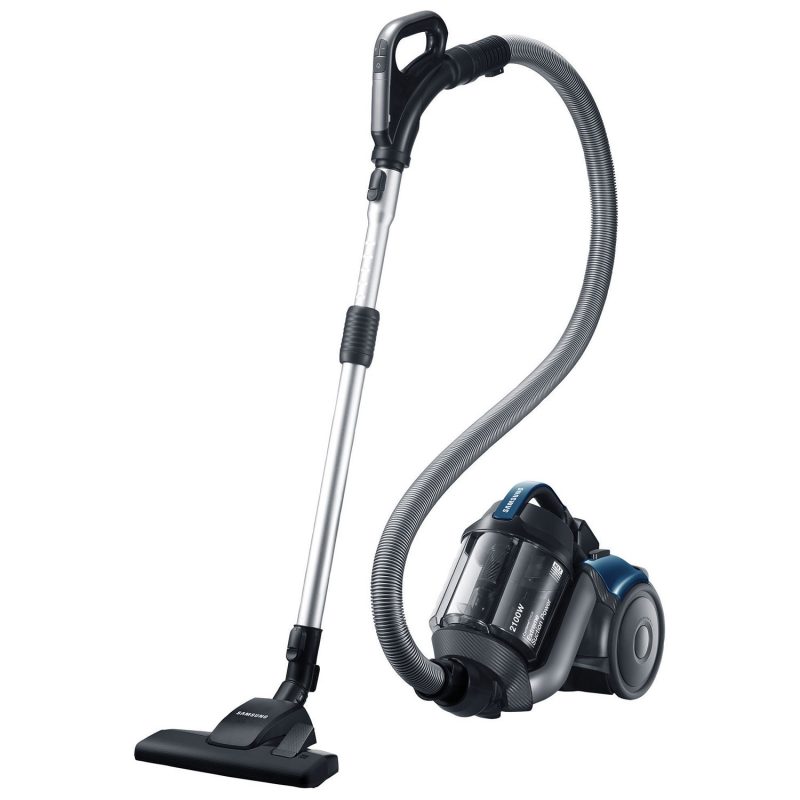Common Causes of Vacuum Cleaner Odors
Vacuum cleaner smells when running? Vacuum cleaner odors can arise from several sources. Identifying the cause is crucial to finding a solution.

Debris Buildup and Bad Smells
Accumulated debris like pet hair, food crumbs, and particles can cause stinky vacuums. When vacuums heat up, these trapped pieces can smell worse.
The Role of Mold in Musty Vacuum Smells
Mold can grow inside vacuums exposed to moisture or used in damp areas, leading to musty odors.
Dust Accumulation and Associated Scents
Vacuums trap more than just dust. Mold and bacteria found in dust can also create unpleasant scents.
Mechanical Issues and Burning Odors
A stretched-out belt or other mechanical problems may cause vacuums to overheat and emit a burning smell.
Step-by-Step Guide to Getting Rid of Vacuum Smells
To fix a stinky vacuum, follow these steps.
Emptying the Waste from Your Vacuum
Start by tossing out the old vacuum bag or emptying the canister. Wear gloves to avoid direct contact with debris. Do this task outside if possible, and dispose of the waste immediately.
Cleaning or Replacing the Filter
Next, address the filter. If it’s washable, rinse it under water until it runs clear. If it’s not, go ahead and replace it with a fresh one. A clean filter can greatly reduce odors.
Inspecting for and Removing Clogs
Check all vacuum parts for clogs. Wear eye protection to keep dust away. If clogs are found, use gloves to clear them. Cut hair and debris free with scissors, but be careful not to damage any parts.

Deep Cleaning Removable Parts
Take apart any removable pieces of your vacuum. Soak them in water mixed with baking soda. This will help in eliminating deep-set smells. Allow parts to air dry fully before reassembling the vacuum.
Preventive Measures for a Fresh-Smelling Vacuum
To keep your vacuum smelling clean, it’s important to follow some basic preventive measures. Here are some essential steps:
Routine Maintenance and Manufacturer’s Recommendations
It’s important to adhere to the routine maintenance schedule recommended by your vacuum’s manufacturer. Regularly check and clean your vacuum to prevent odors from building up. This includes emptying the dust bin after each use, wiping down exterior surfaces, and keeping the brushes free of hair and debris.
Regular Bag, Belt, and Filter Replacements
Vacuum bags, belts, and filters are key components that need attention. Replace vacuum bags as they fill up, and check the belt for signs of wear every few months. Washable filters should be rinsed regularly, while replaceable filters require periodic swapping for optimal performance.
Use of Odor-Eliminating Products
Odor-eliminating products can help maintain a fresh vacuum. Consider adding a capful of scented beads or sprinkling baking soda inside the vacuum bag or canister. Some vacuums have the option of scented filters, which release a pleasant smell during use. However, always follow the manufacturer’s guidelines to prevent damage to your vacuum.
Tips for Specific Vacuum Cleaner Smells
Handling the various smells your vacuum emits can be tricky. Here, we offer targeted advice for common odorous challenges.
Addressing Pet Hair and Dander Issues
Pet hair and dander are major causes of vacuum odors. Frequent vacuum bag or bin emptying is vital. Clean or replace filters to remove trapped dander. Regular grooming of pets can reduce the amount of hair vacuumed.
Handling Burnt Rubber or Electrical Smells
A burnt smell often points to a worn belt or motor issue. Stop using your vacuum if you detect such odors. Check and replace the belt if needed. If the problem persists, seek professional help to avoid dangerous situations.
Preventing and Dealing with Musty and Moldy Odors
Musty smells usually suggest mold presence. Ensure your vacuum doesn’t pick up wet debris. Clean and dry all parts thoroughly to prevent mold growth. Store your vacuum in a dry, ventilated area to discourage mold and mildew.
Alternatives to Traditional Odor Solutions
When you notice your vacuum cleaner smells when running, it’s time to consider some alternative solutions.
Utilizing Scented Filters for Fresher Vacuuming
Scented filters can make a big difference in how your vacuum smells. These filters release a fresh scent while you clean. They are easy to install and work well in fighting off bad odors. Always check compatibility with your vacuum model before using scented filters.
The Benefits of Vacuum-Safe Deodorizing Powders
Deodorizing powders are another way to freshen up your vacuum. They absorb odors and can leave a pleasant aroma. Sprinkle them on your carpet before vacuuming. Remember, use them sparingly to avoid clogging your machine. Always follow the vacuum manufacturer’s instructions.
Choosing the Right Vacuum for a Cleaner Smell Experience
When picking a vacuum, consider features that combat odors. Certain models come designed to tackle scents effectively, giving you a cleaner smell experience during and after use.
Features to Consider for Pet Owners
If you own pets, look for vacuums with high-suction power and specialized pet hair attachments. Models with sealed systems and HEPA filters handle dander and fur easily. Go for vacuums that offer easy-to-clean canisters and tangle-free brush rolls for hassle-free maintenance. Choose ones that support scented pads or filters to make your home smell great.
Upgrades and Innovations in Modern Vacuums
Modern vacuums feature advanced capabilities designed to maintain freshness and eliminate odors. For instance, many implement self-cleaning brush rolls that automatically remove hair and debris, ensuring optimal performance. Manufacturers incorporate antimicrobial materials to prevent the growth of bacteria and mold, which can contribute to unpleasant smells.
Additionally, some vacuums come equipped with washable parts, allowing users to easily clean and maintain their machines. This convenience not only prolongs the life of the vacuum but also helps keep your living space smelling fresh.
As a notable innovation, smart sensors are integrated into certain models, providing users with timely alerts regarding when to clean or change filters. This proactive approach empowers homeowners to take control of their vacuum maintenance, leading to a cleaner and healthier environment.
Robot vacuums have also gained popularity for their ability to dock and charge themselves, seamlessly taking on the responsibility of managing their own cleanliness. With their self-sufficient design, these devices ensure that your floors remain dirt-free without requiring constant attention.
Frequently Asked Questions About Vacuum Cleaner Odors
How to Tackle Persistent Unpleasant Smells
Getting rid of lasting bad smells in your vacuum can be tricky. Start by emptying the dustbin or changing the bag. Then, clean or swap out the filter. Don’t forget to check and clear away clogs from brushes and hoses. You may also try odor-fighting solutions. These include using baking soda, scented filters, or deodorizing powders. Always make sure parts are totally dry before reassembling to prevent mold.
When to Seek Professional Help for Vacuum Odors
If your vacuum cleaner continues to emit unpleasant odors even after you’ve thoroughly cleaned it, consider seeking expert assistance. In particular, if you detect a burning smell or notice any smoke, these might signal a potential motor issue or an electrical fault. In such cases, it’s crucial to recognize the importance of professional evaluation.
Rather than attempting to troubleshoot or fix the vacuum yourself, which could lead to further complications or even safety hazards, reaching out to a qualified technician is a wise choice. Professionals possess the training and experience necessary to accurately diagnose the problem and provide effective solutions.
Additionally, taking prompt action not only ensures your safety but also prolongs the life of your device. Remember, the risk of electrical problems can escalate quickly, and it’s always better to err on the side of caution. By opting for expert help, you can ensure that your vacuum operates safely and efficiently, keeping your home clean and fresh.



